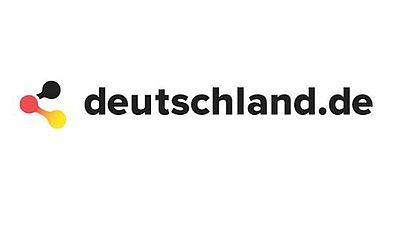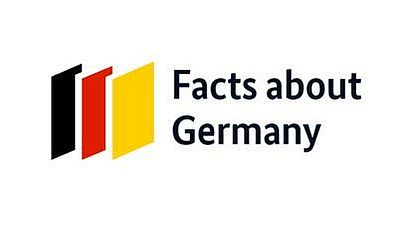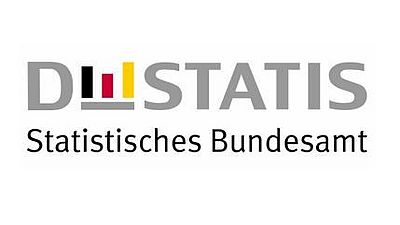
Economy
Would you like to know more about the German economy? On this page, you can learn more about the defining characteristics of Germany’s economic activity.
German industry generates high earnings
Despite major cyclical fluctuations, earnings have risen in most economic sectors over the past few years. The sectors focussing on export play a crucial role in this. The automotive industry remains the leader: it posted earnings of 564 billion euros in 2023. As an innovation leader, it is an important contributor to growth and prosperity. Vehicle manufacturing also secures earnings for other sectors, as it has close links with companies in the chemical, electrical engineering, steel, metal and textile industries.
Nevertheless, companies in other sectors also generate high turnovers: for example, in the healthcare industry (432.5 billion euros in 2023) or in the electrical engineering and electrical industry sector (238 billion euros in 2023). With a broad portfolio of services, these sectors offer a wide variety of employment opportunities.
The German success model
When reporting on Germany’s successful economy, Time magazine recently remarked that many German companies have specialised in the “unsexy side of the industrial spectrum: not smartphones or iPads but machinery and other heavy equipment”.
Some German companies, such as carmakers and the world’s third-largest software supplier, might disagree and insist that their products are very much on the “sexy side” of the industry. Yet the analysis is essentially correct: highly specialised industrial companies producing highly specialised goods are the engine of growth in the German economy. Following the much-lauded era of virtual wealth creation on the financial markets, the following principle is to be kept in mind: the industry has always been a major plank of our prosperity. With its high contribution to the industry, the German economy is well positioned globally.
The majority of Germany’s visible exports are industrial goods. German companies are leading in many sectors and in many markets worldwide. This applies, for example, to so-called green technologies – i.e. products in the fields of environmental and climate protection. In the burgeoning sector of renewable energy, which includes photovoltaics, wind power and highly efficient power plant technology, the German economy has a high share on the global market.
Germany is not only regarded as the country of great innovations in green technologies. Ground-breaking inventions include the motorbike, the tram and the car. In a globalised world, a country’s innovative strength is crucial if it is to remain in its position as a global player. In 2023, Germany topped the European rankings with 58,661 patent applications. To achieve this capacity for innovation, Germany’s researchers and engineers have to be creative in developing and bold in implementing ideas. But the lack of up-and-coming qualified workers is an obstacle. In order to further strengthen its ability to innovate, Germany is therefore partly dependent on the immigration of highly qualified professionals. To summarise, smart people are important now and will continue to be so in the future, regardless of whether they come from Germany or from abroad.
Europe’s largest economy scores highest with its excellent infrastructure, its highly developed corporate and services sector, its system of higher education, its first-rate vocational training – for example in the skilled crafts and trades – and, not least of all, its capacity to deliver technological innovations.
Investments in research and development are an important indicator of a country’s prosperity and competitiveness. In 2023, Germany spent around 3 per cent of its GDP (BIP) on research and development. In comparison with other European countries, that is a considerable proportion.
Introducing the German "Mittelstand"
More than 99% of all German businesses are small to medium-sized companies and therefore fall into the Mittelstand category. This is not so much the case in other countries and in some, the German word has even been taken up into the local language because there is no exact equivalent for it. They range from small, innovative software-smiths to globally operating mechanical engineering firms, right to venerable old artisan businesses, and beyond. In purely statistical terms, any business with fewer than 500 employees is a small and medium-sized enterprise, or SME. But the term Mittelstand is often used to include much larger companies too, if they are run in the same spirit as a small or medium-sized enterprise. In that case, it means that the owner or owners take the business decisions largely on their own and assume the risks and liability. Most SMEs are working to secure the company’s long-term existence and place great value on lasting relationships with customers, suppliers and other businesses. As an employee of an SME, you are more than just “one of many”. Moreover, many SMEs take an active role in their regions by sponsoring education, culture and sport.
Many German SMEs are technology-driven and therefore in line with the traditional German taste for inventing and “tinkering”. The main sales argument for their products and services is not usually one of price, but the quality and the large number of innovations that have found practical implementation. A large number of these companies are the European or global market leaders in their sector. Within the usually fairly small, internal structures of these companies, numerous employees working in various disciplines, such as development, production, sales and service, are involved in the innovation processes and play their part in innovation, too.
In fact, truly innovative products are often the work of so-called hidden champions. These companies are generally largely anonymous members of Germany’s Mittelstand, yet belong to the top three in their sector worldwide.
As many as 1,600 of these hidden champions help power Germany’s economy. Since many are tucked away in the provinces, their contribution is sometimes overlooked. A significant number of them employ thousands of people. As employers, they are much appreciated, since they tend to have a long-term vision and generally provide secure and well-paid jobs.
Information on the web
- Federal Ministry for Economic Affairs and Energy Main focus of the economic policy
- Research in Germany – Land of ideas Diverse research opportunities
Do you have any questions?
Let us advise you on your opportunities to work and live in Germany. Our experts will support you with questions regarding job search, visa, recognition and learning German.
You can find out more about the various contact options by clicking on one of the icons in the bar below.






